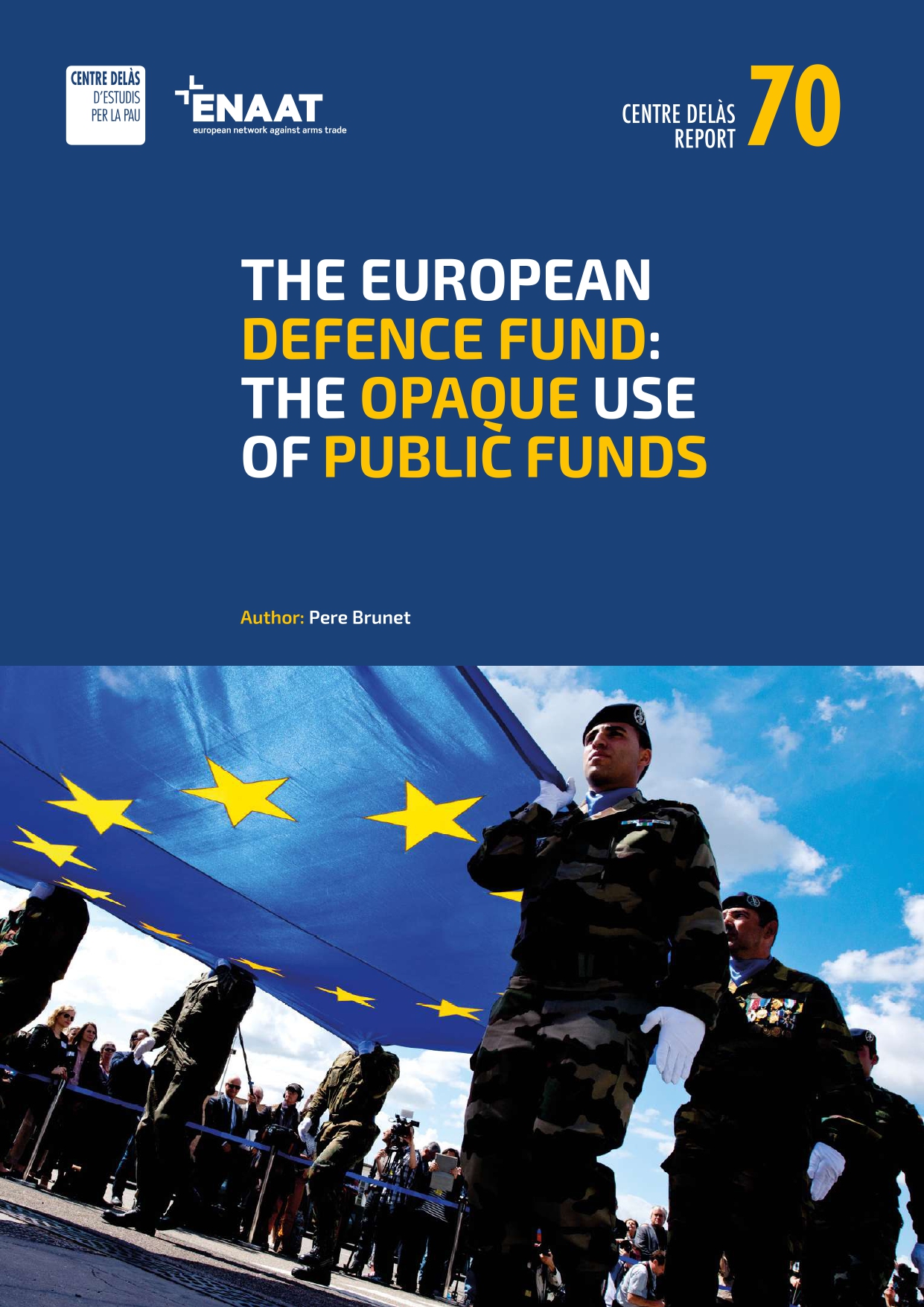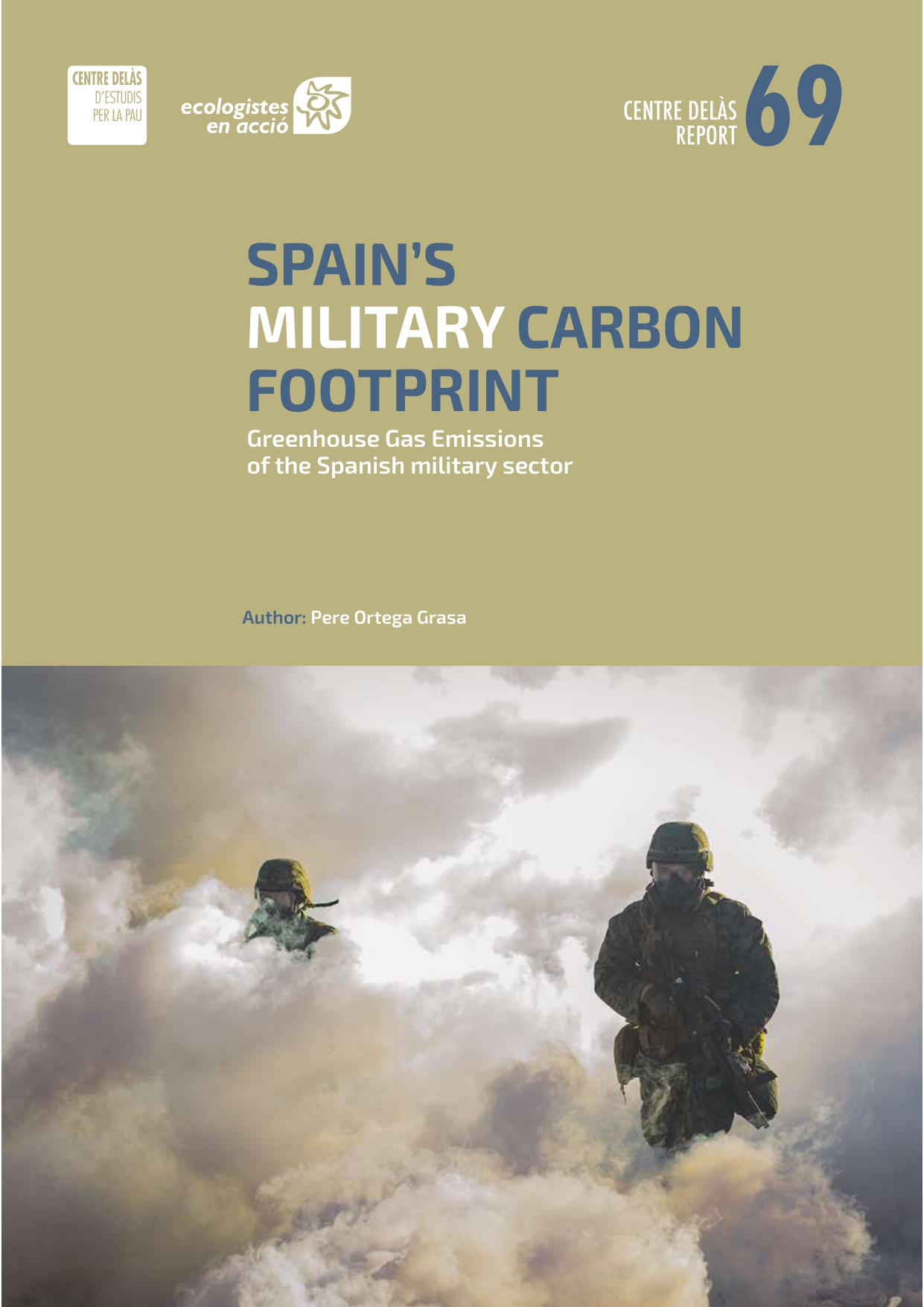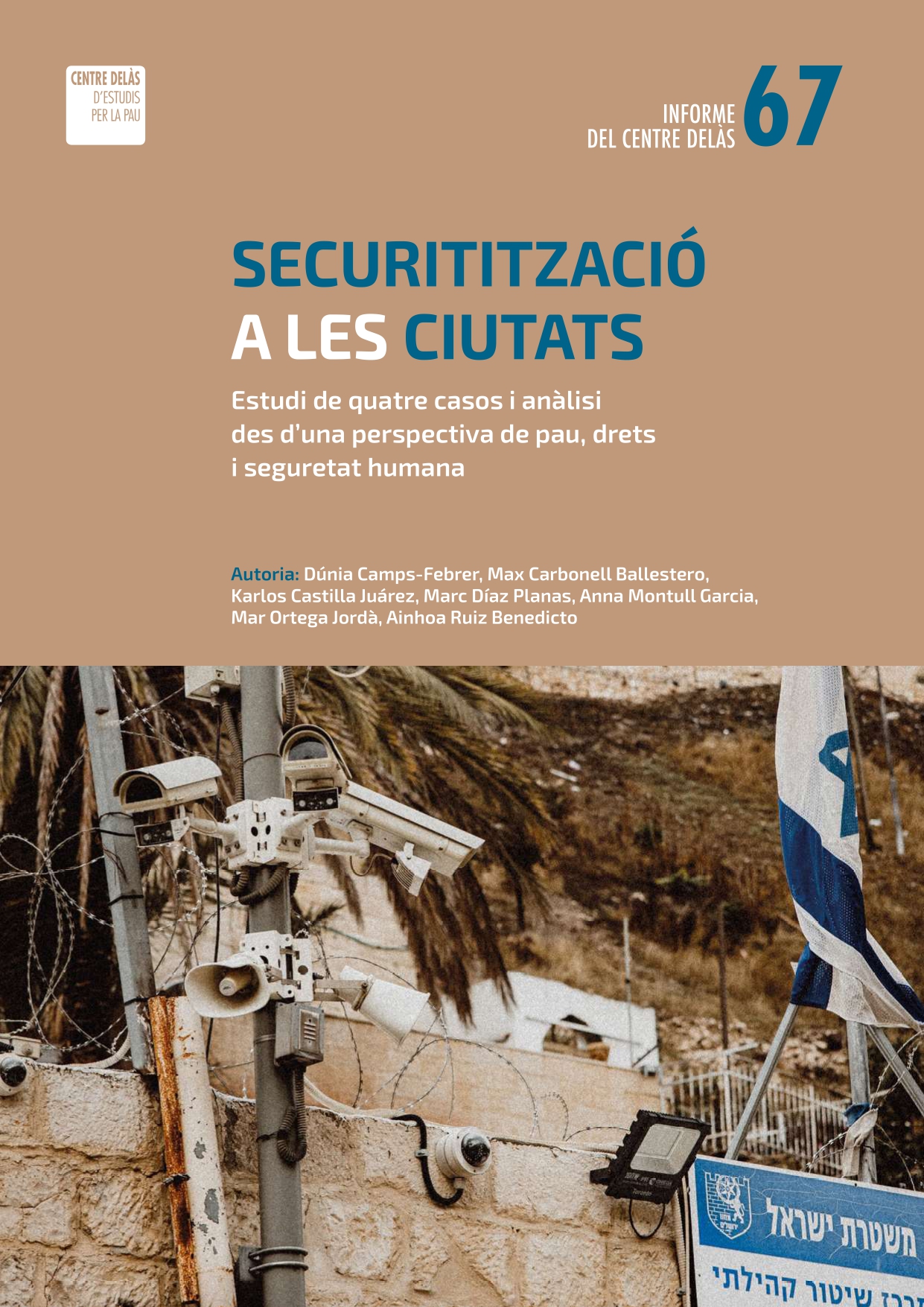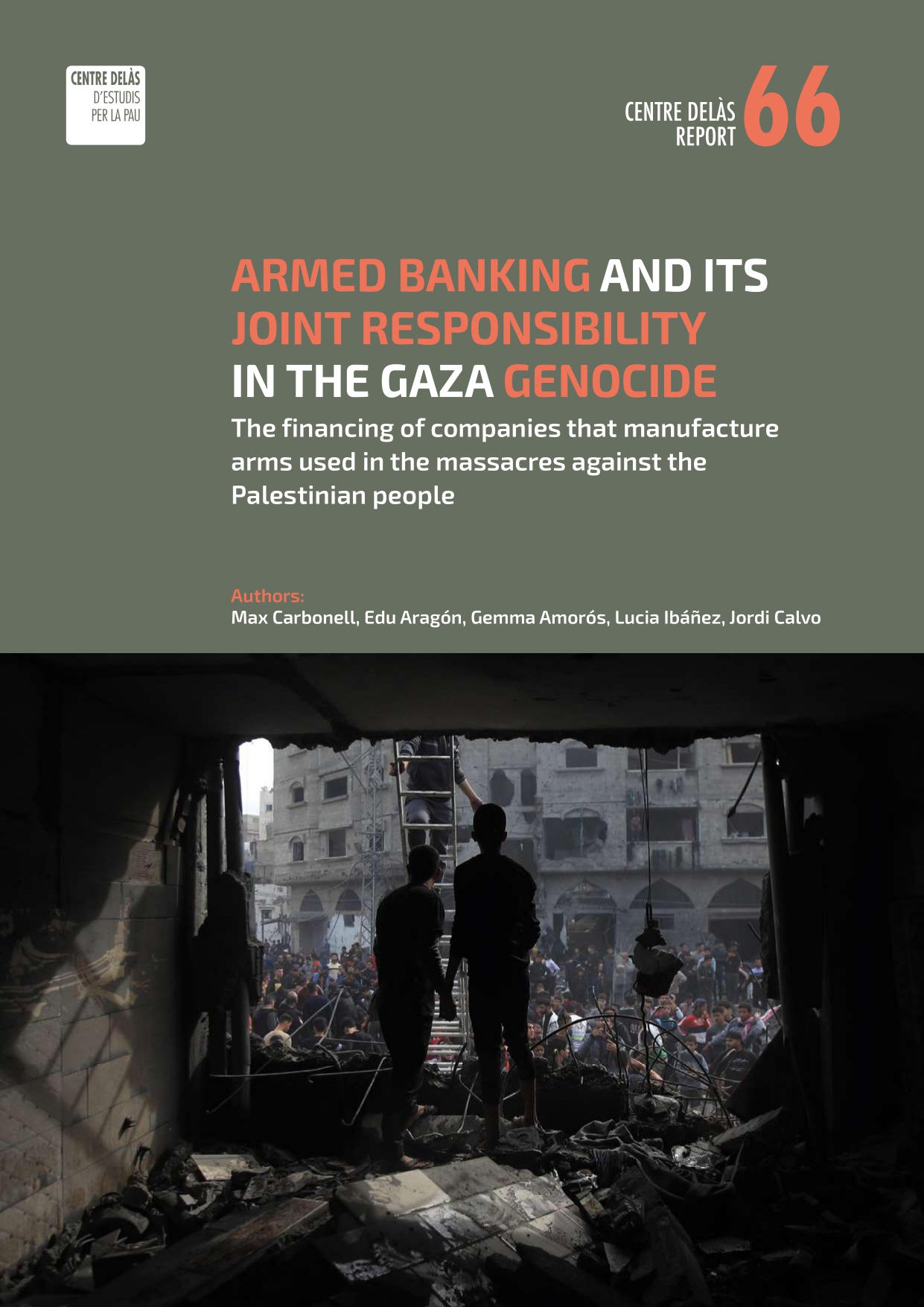Posted in Barcelona/Berlín/Madrid
Arms transfers by Spanish company Airbus to Saudi Arabia and UAE may have contributed to war crimes in Yemen
Prosecutor’s Office of the International Criminal Court, urged to open an investigation into these atrocities
- New report by NGOs Amnesty International, Centre Delàs for Peace Studies and European Center for Constitutional and Human Rights reveals the key role of Airbus Spanish company and the Spanish Government in the production, export and maintenance of the combat aircraft Eurofighter Typhoon used to carry out airstrikes by the Saudi/Emirati-led Coalition in Yemen since March 2015, including alleged war crimes.
- The report also denounces the responsibility of Airbus in the production of the aerial refueling tanker plane A330 Multi Role Tanker Transport (MRTT), which has been used by both the UAE and Saudi Arabia in their air campaign over Yemen.
- The components of the Eurofighter Typhoons used in the war in Yemen are produced in Spain, Germany, Italy and the UK.
- The NGOs renew their call to the Office of the Prosecutor of the International Criminal Court to investigate the role of executives of European arms companies and arms licensing officials in alleged war crimes in Yemen through the continuous supply of military goods.
Barcelona/Berlin/Madrid- A new report launched by the NGOs Amnesty International, Centre Delàs for Peace Studies and European Center for Constitutional and Human Rights exposes new evidence of links between Spanish company, Airbus Defence and Space S.A., arms transfers to the Kingdom of Saudi Arabia (KSA) and the United Arab Emirates (UAE) and alleged war crimes committed in Yemen between the start of the conflict in 2015 and June 2021, including attacks on hospitals, schools and against civilians.
The report documents Spanish arms exports to the KSA and the UAE (the countries leading the Coalition waging an aerial campaign over Yemen), highlighting Spain’s role in the production, export and maintenance of both the Eurofighter Typhoon combat aircraft as well as the aerial refueling tanker plane A330 MRTT. Parts for the Eurofighter are produced by Airbus Spain in Illescas (Toledo) and in Getafe (Madrid), then delivered to BAE Systems in the United Kingdom and subsequently exported to the Kingdom of Saudi Arabia.
Spanish arms exports to the KSA and UAE from 2015 until June 2021 reached over €1,600 million. In the same period, Spain granted 116 arms export licenses to the KSA and 140 to the UAE. Between 2015 and June 2021, Spanish government officials have granted export licenses of parts and components of the Eurofighter produced by Airbus worth €802,443,776. Both Saudi Arabia and the UAE have received several A330 MRTTs, with Saudi Arabia receiving six A330 MRTTs from Airbus Spain. The last one of these planes, worth €400 million, was licensed for export to Saudi Arabia in July 2015 by Spanish Government officials, well into the conflict in Yemen. The UAE has also received several of these planes. Different sources have confirmed the use of the A330 MRTTs for aerial refueling of Eurofighter Typhoons and other combat aircraft in Yemen in airstrikes carried out by the Saudi/Emirati-led Coalition in Yemen. Spain has also carried out major maintenance work on A330 MRTTs on its territory, with the collaboration of the Spanish air company Iberia.
Almost 20,000 people are estimated to have been killed or injured in the over 25,000 Coalition air raids since 2015 and 2.5 million internally displaced, according to the United Nations and other sources.
In July 2019, the Spanish Ministry of Industry, Commerce and Tourism refused the request made by Centre Delàs for access to details of the licenses of exports for parts of the Tornado combat aircraft alleging it is a matter covered under the 1968 Official Secrets Act.
“Spanish military equipment is essential for both aircraft and a number of other military goods used by the Saudi/Emirati-led Coalition that has committed atrocities in Yemen. This raises serious questions as to the potential complicity of the Spanish government in the commission of international crimes in Yemen”, Alberto Estévez, Amnesty International spokesperson says. “The Spanish government should stop these arms transfers in breach of international law”.
Under Article 6 of the Arms Trade Treaty (ATT), ratified by Spain in 2014, States are prohibited from authorizing any transfer of conventional arms and related ammunition/munitions and parts and components where a State has knowledge that the arms being considered for authorization would be used in the commission of war crimes, among other atrocities. Both European Union and Spanish law have similar provisions prohibiting these arms transfers.
Based on the report’s findings, there seems to be a reasonable basis to believe that war crimes were committed by coalition forces in Yemen and that both Spanish government officials and the decision-making staff of Airbus Defense may have aided and abetted such alleged war crimes.
“Airbus is benefiting from the continuous stream of arms licenses granted by the Spanish government for the Coalition, and it needs to be held accountable. Corporations are responsible under international standards to avoid causing or contributing to adverse human rights impacts that are directly linked to their operations. It is shameful that the Spanish government puts its head in the sand, continuing to grant arms exports licenses to the Saudi/Emirati-led coalition and hides behind a Francoist-era Official Secrets Act to even refuse access to specific data of these exports”, Jordi Calvo Rufanges, Centre Delàs for Peace Studies spokesperson declares.
European complicity
“Military goods of European origin constitute a substantial part of the overall equipment available to Saudi Arabia and UAE air forces. Among them, military goods from five European countries, namely the United Kingdom, Germany, Spain, France and Italy, make up the biggest share of arms delivered from Europe to Saudi Arabia, the UAE and Egypt. It is time for both corporate and government actors to review their actions against the standards of international criminal law and for the Prosecutor of the ICC to investigate their role in the atrocities committed in Yemen”, Christian Schliemann-Radbruch, Co-Director Business and Human Rights at ECCHR, states.
The three NGOs are asking the Spanish Government to set up an independent enquiry involving renowned experts in International Human Rights Law and International Humanitarian Law into the use of the A330 MRTTs and the Eurofighter Typhoon combat aircraft by the Coalition; suspend any licenses for the provision of maintenance, training and other associated services related to the A330 MRTTs, and suspend any export licenses of (spare) parts and components for the Eurofighter Typhoon.
Background information
This report is a follow-up of the submission in December 2019 of a 300-page Communication and supporting evidence to the ICC’s Office of the Prosecutor (OTP) by the ECCHR, supported by five NGOs including Amnesty International, and Centre Delàs. The NGOs renew their call on the ICC to investigate whether high-ranking officials, from both European companies and governments, could bear criminal responsibility for supplying arms used by members of the Saudi Arabia/UAE-led Coalition in potential war crimes in Yemen. To date, the ICC Prosecutor’s Office has not taken a decision on whether to launch an investigation into their potential complicity in 26 specific airstrikes which unlawfully killed or injured civilians, and destroyed or damaged schools, hospitals and other protected objects. //




